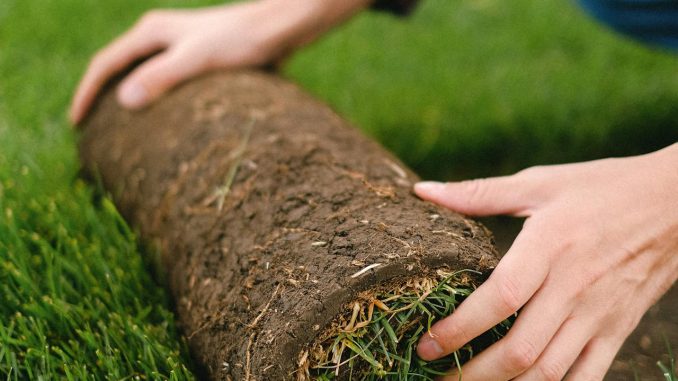
A turf farm is a specialized agricultural operation focused on growing, maintaining, and harvesting grass turf for a variety of applications, including residential lawns, sports fields, golf courses, and public parks. Turf farms cultivate different types of grass, depending on the climate, soil conditions, and the intended use of the turf. The turf is grown on large plots of land, carefully managed for optimal growth and quality, and then harvested in sod rolls or slabs for easy transportation and installation.
In this article, we will explore what a turf farm is, how it operates, and the various benefits it offers to consumers looking for a beautiful, ready-made lawn solution.
How Does a Turf Farm Work?
Turf farms are essentially large-scale grass-growing operations, where the primary product is fully mature, healthy grass ready to be transplanted. Here’s a breakdown of how a typical turf farm operates:
1. Soil Preparation
The foundation of a successful turf farm starts with the soil. Farmers carefully prepare the soil by plowing, leveling, and amending it with nutrients to ensure it can support healthy grass growth. The soil’s pH levels, organic matter content, and drainage are all crucial factors in determining the quality of the turf. Proper soil preparation ensures that the grass has the right conditions to establish strong root systems and grow uniformly.
2. Seeding and Cultivation
After the soil is prepared, the turf farm plants high-quality grass seeds. The type of grass grown on the farm varies depending on local climate conditions and customer demand. For example, cool-season grasses like Kentucky bluegrass or fescue are grown in colder climates, while warm-season grasses like Bermuda or Zoysia are better suited for hotter regions.
Once the grass seeds are planted, the farm closely monitors and manages the growth process. This includes:
- Irrigation: Turf farms use sophisticated irrigation systems to ensure the grass receives the correct amount of water, promoting healthy growth without overwatering.
- Fertilization: Regular applications of fertilizers are used to provide essential nutrients that promote lush, green turf.
- Weed and Pest Control: Turf farms use integrated pest management strategies and herbicides to keep weeds, insects, and diseases from damaging the grass.
3. Mowing and Maintenance
To ensure the turf is dense and uniform, the grass on a turf farm is regularly mowed to a specific height. Consistent mowing helps thicken the turf and encourages the development of strong roots. Additionally, other maintenance practices such as aeration (which improves soil structure and oxygen flow to the roots) and dethatching (removing excess organic material) are performed to keep the grass in peak condition.
4. Harvesting the Turf
Once the grass has matured to the desired thickness and quality, it is harvested. The turf is cut into strips or rolls using specialized machines, known as turf harvesters, which slice beneath the grass roots, leaving the soil largely intact. The harvested turf is then rolled up and prepared for delivery to the customer. Each roll contains a layer of soil that holds the grass’s roots, making it easier to install and allowing the grass to quickly establish itself in its new location.
5. Installation and Delivery
After harvesting, the turf is transported to its final destination, whether that’s a homeowner’s lawn, a sports field, or a commercial property. The turf can be quickly installed by unrolling it over the prepared soil, where it will take root and grow within a few weeks. Turf installation is often favored over traditional grass seeding because it provides an immediate, aesthetically pleasing green lawn without the wait time of growing grass from seed.
Benefits of Turf Farms
Turf farms offer several advantages for consumers, particularly those looking for a fast, convenient, and high-quality solution to their landscaping needs.
1. Instant Results
One of the main advantages of purchasing turf from a farm is that it provides an instant green lawn. Rather than waiting months for grass seeds to germinate and grow, you can install turf and enjoy a lush, beautiful lawn immediately.
2. High-Quality Grass
Turf farms use premium grass varieties and expert farming techniques to produce turf that is thick, healthy, and free of weeds. The grass grown on turf farms is carefully selected and cultivated to meet high standards, ensuring that customers receive a superior product.
3. Less Maintenance
Turf from a farm is generally more durable and easier to maintain than grass grown from seed. The grass is already mature and well-established, which means it requires less water, fertilizer, and attention to reach optimal health after installation.
4. Versatility
Turf farms grow grass for a variety of purposes, from residential lawns to high-traffic sports fields. They offer different types of grass to suit various climates and conditions, allowing consumers to choose the best turf for their specific needs.
Conclusion
A turf farm is a specialized agricultural business dedicated to growing high-quality grass that can be harvested and transplanted for use in lawns, sports fields, and other green spaces. By offering instant results and superior grass quality, turf farms provide a convenient solution for homeowners, landscapers, and businesses looking to enhance their outdoor spaces with beautiful, healthy turf.

Leave a Reply